-
Camps 冬夏令營
-
Long Term Study 长期学习
Featured Cities
5,000 years of history has made China one of the world's most ancient civilizations. Its mystery, majesty and traditions have made it extremely diverse and magnificent. Its unparalleled growth over the past three decades has also made it a rising power and influential country in the world. Because of these facts, understanding China is essential to embrace the future in an ever globalized world, and learning Chinese is a necessity to stay competitive for young people.

 Beijing
Beijing
The most popular destination for studying Mandarin Chinese.

 Beijing
Beijing
Beijing is one of the world's truly imposing cities, with a 3,000-year history and over 14 million people. Rich in history, the city has been China's primary capital for 800 years. It served as the capital of the Yuan Dynasties (1206-1368), and the subsequent Ming (1368-1644), and Qing (1644-1911) dynasties whose imprint is evident in Beijing's countless pagodas, temples and imperial parks that exist peacefully alongside modern high-rises and bustling markets. It is the capital of People's Republic of China since 1949. The city is not only the nation's political capital, but also a major economic and cultural center in Asia and the world.
Beijing, a dynamic city where the old and new intermingle, remains a magnet for visitors from inside and outside China. It offers such a wide array of attractions that one can easily spend weeks without getting bored. Most of them are the very names reverberate with history and legend. Beijing provides our students with limitless opportunities for learning about all aspects of China's history and culture, just outside the school gates.


 Shanghai
Shanghai
China's financial center; Asia's most cosmopolitan city.
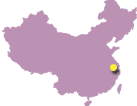
 Shanghai
Shanghai
Beijing is one of the world's truly imposing cities, with a 3,000-year history and over 14 million people. Rich in history, the city has been China's primary capital for 800 years. It served as the capital of the Yuan Dynasties (1206-1368), and the subsequent Ming (1368-1644), and Qing (1644-1911) dynasties whose imprint is evident in Beijing's countless pagodas, temples and imperial parks that exist peacefully alongside modern high-rises and bustling markets. It is the capital of People's Republic of China since 1949. The city is not only the nation's political capital, but also a major economic and cultural center in Asia and the world.
Beijing, a dynamic city where the old and new intermingle, remains a magnet for visitors from inside and outside China. It offers such a wide array of attractions that one can easily spend weeks without getting bored. Most of them are the very names reverberate with history and legend. Beijing provides our students with limitless opportunities for learning about all aspects of China's history and culture, just outside the school gates.


 Hangzhou
Hangzhou
The best place to study Mandarin; astonishing landscapes in southeast China.
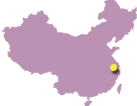
 Hangzhou
Hangzhou
Beijing is one of the world's truly imposing cities, with a 3,000-year history and over 14 million people. Rich in history, the city has been China's primary capital for 800 years. It served as the capital of the Yuan Dynasties (1206-1368), and the subsequent Ming (1368-1644), and Qing (1644-1911) dynasties whose imprint is evident in Beijing's countless pagodas, temples and imperial parks that exist peacefully alongside modern high-rises and bustling markets. It is the capital of People's Republic of China since 1949. The city is not only the nation's political capital, but also a major economic and cultural center in Asia and the world.
Beijing, a dynamic city where the old and new intermingle, remains a magnet for visitors from inside and outside China. It offers such a wide array of attractions that one can easily spend weeks without getting bored. Most of them are the very names reverberate with history and legend. Beijing provides our students with limitless opportunities for learning about all aspects of China's history and culture, just outside the school gates.


 xi'an
xi'an
Home of Terracotta Warriors; the historic heart of China.
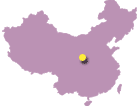
 xi'an
xi'an
Beijing is one of the world's truly imposing cities, with a 3,000-year history and over 14 million people. Rich in history, the city has been China's primary capital for 800 years. It served as the capital of the Yuan Dynasties (1206-1368), and the subsequent Ming (1368-1644), and Qing (1644-1911) dynasties whose imprint is evident in Beijing's countless pagodas, temples and imperial parks that exist peacefully alongside modern high-rises and bustling markets. It is the capital of People's Republic of China since 1949. The city is not only the nation's political capital, but also a major economic and cultural center in Asia and the world.
Beijing, a dynamic city where the old and new intermingle, remains a magnet for visitors from inside and outside China. It offers such a wide array of attractions that one can easily spend weeks without getting bored. Most of them are the very names reverberate with history and legend. Beijing provides our students with limitless opportunities for learning about all aspects of China's history and culture, just outside the school gates.


 Inner Mongolia
Inner Mongolia
Explore the distinctive features of Mongolia - the vast grassland and spectacular landscape.
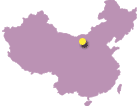
 Inner Mongolia
Inner Mongolia
Beijing is one of the world's truly imposing cities, with a 3,000-year history and over 14 million people. Rich in history, the city has been China's primary capital for 800 years. It served as the capital of the Yuan Dynasties (1206-1368), and the subsequent Ming (1368-1644), and Qing (1644-1911) dynasties whose imprint is evident in Beijing's countless pagodas, temples and imperial parks that exist peacefully alongside modern high-rises and bustling markets. It is the capital of People's Republic of China since 1949. The city is not only the nation's political capital, but also a major economic and cultural center in Asia and the world.
Beijing, a dynamic city where the old and new intermingle, remains a magnet for visitors from inside and outside China. It offers such a wide array of attractions that one can easily spend weeks without getting bored. Most of them are the very names reverberate with history and legend. Beijing provides our students with limitless opportunities for learning about all aspects of China's history and culture, just outside the school gates.


 Taiwan
Taiwan
Coming soon ...

 Chengdu
Chengdu
Chengdu is known as the "Heavenly State" (Tian Fu Zhi Guo).
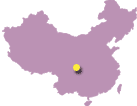
 Chengdu
Chengdu
Chengdu is the capital of Sichuan Province, which is known as the "Heavenly State" (Tian Fu Zhi Guo). Being the natural habitat of cute giant pandas, it is located in the west of Sichuan Basin and in the center of Chengdu Plain. It covers a total area of 12.3 thousand square kilometres (4,749 square miles) with a population of over 11 million.
Benefiting from Dujiangyan Irrigation Project which was constructed in 256 B.C., Sichuan Province is reputed as "Tian Fu Zhi Guo", literally a place richly endowed with natural resources. Chengdu, as the capital, is extremely productive. The Min and Tuo Rivers, two branches of the Yangtze River, connected to forty other rivers, supply an irrigation area of more than 700 square kilometres (270.27 square miles) with 150-180 million kilowatts of water. Consisting of abundant mineral resources, the land is extremely fertile.
Passport holders of 51 countries including the USA, Canada, UK, Germany, France, Australia, Russia, Netherlands, Switzerland, Spain, Portugal, Japan, etc. can enjoy 72 hours free transit via Shuangliu Airport.






 Follow Us!
Follow Us! ‘Like’ Us!
‘Like’ Us!